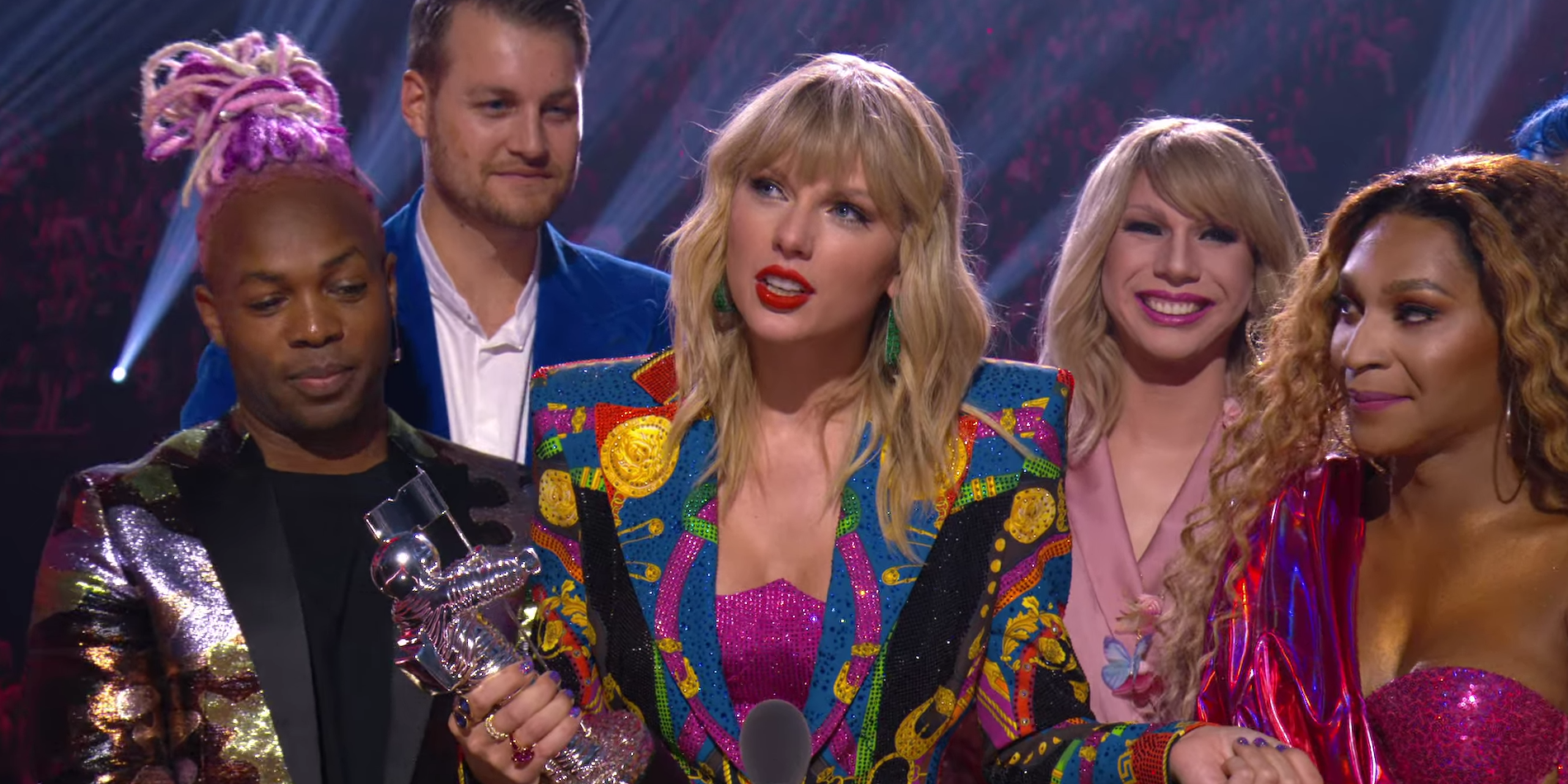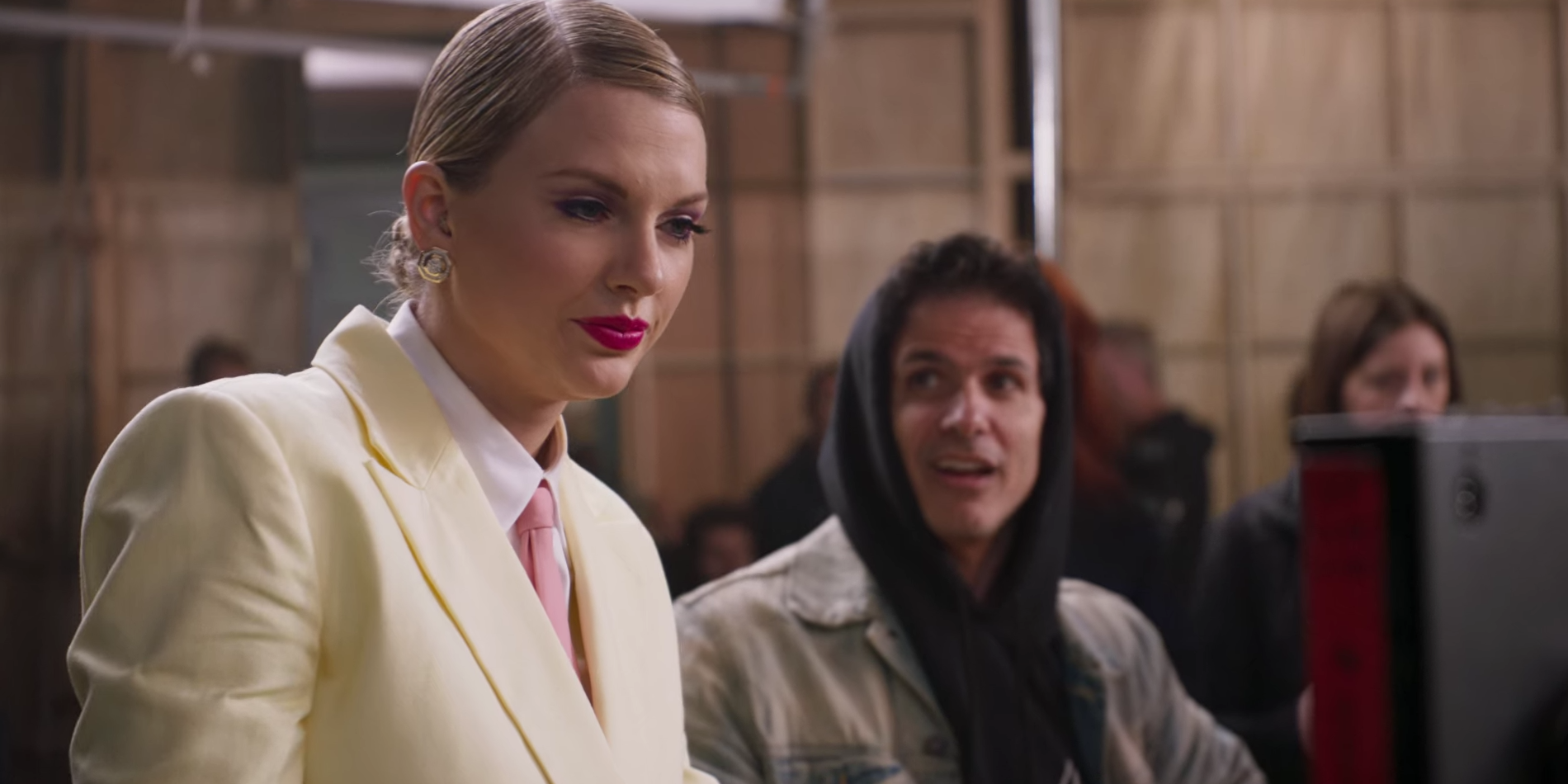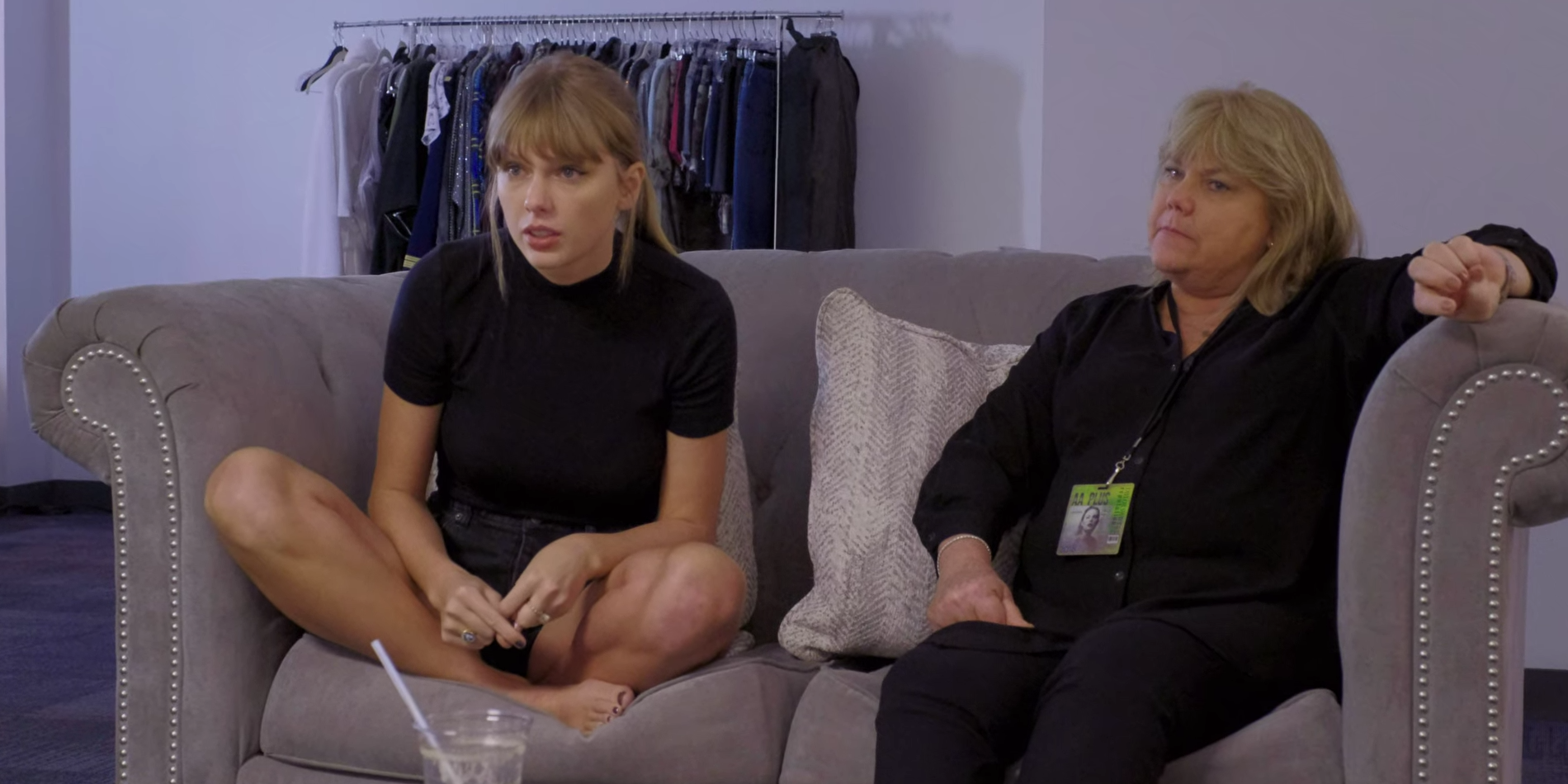Taylor Swift: Miss Americana debuted at the 2020 Sundance Film Festival and hit Netflix last Friday. Seeing as the production is the first documentary to be made about the singer-songwriter, fans weren't sure what to expect. With its premiere following the singer's year-long disappearance and a multi-Grammy-nominated album, there were countless topics fans were hoping the film would shed some light on.
The documentary took viewers through some of the deepest, darkest parts of the singer's personal and professional life. Revealing new insights to stories already told through the tabloids, the film, directed by Lana Wilson, manages to pull on the heartstrings by telling the narratives from a brand-new perspective: Swift's.
10 Romance

Taylor Swift’s romantic life is a hot topic in the media on any given day, and she touches on the subject in the documentary. Backed by soft renditions of Gorgeous, Call It What You Want, and Lover, she talks about falling in love and keeping the relationship private during her disappearance before releasing the album reputation. She describes herself as being happy in the relationship, not “in the way [she’d] trained to be happy,” but in a true and pure way.
For those who haven’t been keeping up with the tabloids, it might not be clear that she was talking about Joe Alwyn, save from his brief appearance as the two share a tender moment at the end of a show.
9 Finding A Voice

The average person outside of Tennessee may never have heard the name Marsha Blackburn until Taylor Swift spoke out against her. Miss Americana sheds light on the pressure the singer had faced to keep her political views secret for most of her career and the circumstances surrounding her breaking her silence.
“In the past, I’ve been reluctant to publicly voice my political opinions, but due to several events in my life and in the world in the past two years, I feel very differently about that now,” she writes in an Instagram post, which goes on to explain her strong beliefs in human rights.
8 Taking A Stand

With a political stance newly made public, Swift set out to educate herself on the things she intended to speak out about. She discusses unlearning the prejudices that everyone who grows up in this society is raised with and learning how to respect people.
The film shows Swift asking friends and collaborators, like Jonathan Van Ness and Todrick Hall, for their opinions on how she can use her voice to help create a better world for all people. The efforts would lead to the writing and production of her single, You Need To Calm Down.
7 Loneliness

Swift’s dreams came true when she won her second Grammy for Album of the Year in 2015, but the documentary reveals just how lonely it was at the top of the world. With no one who could relate to what she was experiencing - both the good and bad times - and no partner who had made the journey to the top with her, Swift conveys a sense of isolation.
Despite being close to her mother, Swift felt that she was going it alone. “Shouldn’t I have someone that I could call right now?” she asked herself.
6 The Stresses Of Celebrity

Swift sums up the pressures of being a musician when she says about her new album, “If I don’t beat everything I’ve done prior, it’ll be deemed as a colossal failure.” Seeing as the album in question, Lover, was nominated for 3 Grammys this year, it seems safe to say it was anything but a failure.
Still, the judgment Swift faces aren’t always about her music. It seems every aspect of the singer’s life is under scrutiny by the press, from the friends she keeps to how thin she is to the number of men she has been involved with. She had succumbed to what people say about celebrities being “frozen at the age they got famous,” and she admits that she had a lot of growing up to do because of these consequences of celebrity.
5 Self-Image

Not for the first time, but for the first time in her own words, Swift opens up in-depth about her relationship with food. After both being called too skinny by the press and hearing speculation that she might be pregnant based on her size, she talks about how seeing pictures of herself where she thought her stomach wasn’t flat enough would send her into a period of not eating.
Swift explains, “I don’t think you know you’re doing that when you’re doing it gradually,” and that she couldn’t see, at the time, the pattern she was falling into, even when people were concerned about her.
4 Womanhood

There’s a sense of urgency when Swift discusses being a woman who has the career she does. “We do exist in this society where women in entertainment are discarded in an elephant graveyard by the time they’re 35,” she points out. Swift talks about the constant need for female artists to reinvent themselves, a standard that doesn’t exist for their male counterparts.
The film shows how often Swift has changed over the years to keep her job, a process she describes as “constantly finding new facets of yourself that people find to be shiny.”
3 Sexual Assault

One of the film's more poignant topics was conveyed in Swift’s sexual assault case in 2017 against the then-radio personality David Mueller, who was found guilty of groping the singer during a photo. In the documentary, Swift recalls the day in court, the impossible questions, and the other side’s lies. She recalls, “you don’t feel a sense of any victory when you win because the process is so dehumanizing.”
The account hits especially hard in the #MeToo era, while women are coming forward with their own stories of sexual assault in hopes that it will encourage more women to speak up. Swift expresses her anger that not only are women assaulted but that the victims are antagonized.
2 Family

At one point, the documentary follows Swift to her parents’ home, where she emphasizes how much she prioritizes her family. A few years ago, she opened up about her mother Andrea’s cancer diagnosis, and the film shows a sweet moment where the two speak briefly about her disease, revealing that she had gotten a dog after receiving her diagnosis, which was something she had always wanted to do.
The film also reveals that Andrea is present for much of Swift’s life, providing support through hectic shows, the previously mentioned trial, and her decision to take a political stand. Andrea remains a confidante for her daughter through her life shown in the film, while Swift reveals how her mother's illness made her put her own problems into perspective.
1 Seeking Approval

It's a topic that is touched upon at several points in the documentary. Swift’s voice-over during the beginning of the film, as well as old footage from her early music career, illustrate how much she craved applause as a kid and how that need for praise followed her well into adulthood. She talks about how it translated to her always doing the right thing, the good thing, with a good work ethic, and how precarious it was to find sustenance solely in what other people thought of her.
The film zeroes in on the negative effects this mindset had on Swift, from the Kanye West VMA incident to what The Guardian described as her “downfall” in the form of the #TaylorSwiftIsOverParty, which would ultimately lead to her year-long disappearance.
from ScreenRant - Feed https://ift.tt/36VtzJm

0 comments:
Post a Comment